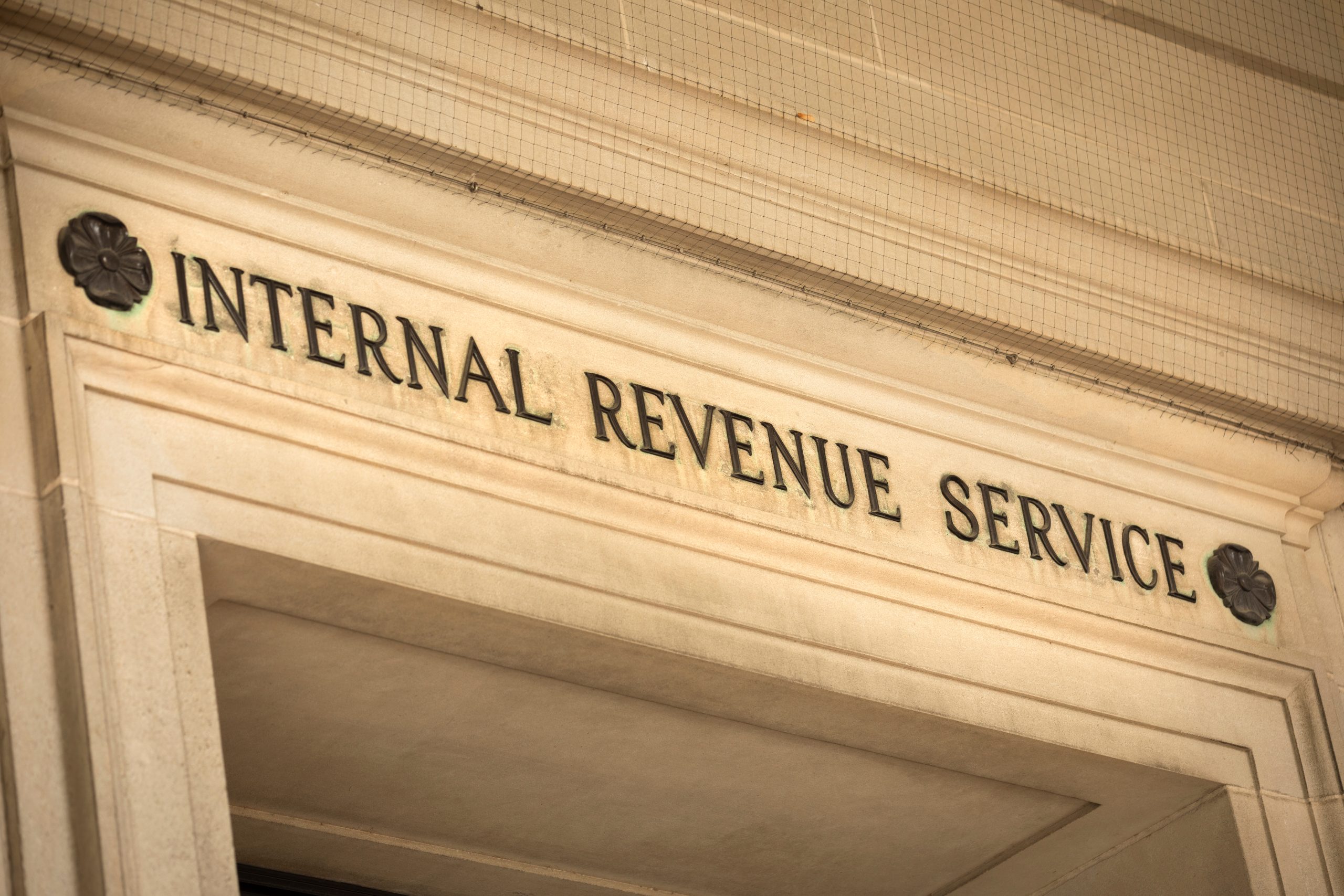What to Do If You Owe the IRS More Than $10,000
Owing the IRS more than $10,000 is not just a financial problem—it’s a legal one. At this threshold, the IRS ramps up enforcement actions that can include garnished wages, frozen bank accounts, and federal tax liens. But despite how serious it may seem, you still have rights, and there are clear paths to relief if you act quickly and wisely.
Step 1: Respond Promptly to IRS Notices
The IRS doesn’t start collections without warning. They’ll send letters—like CP504, LT11, or a Notice of Federal Tax Lien—outlining the amount you owe and the actions they plan to take. These notices aren’t suggestions. They have real consequences if ignored. Open every letter. Take note of every deadline. And don’t wait until enforcement has already begun.
Step 2: Understand the Full Scope of Your Tax Debt
Before jumping into a payment plan or negotiation, you need to know exactly what you owe and why. Request your IRS account transcript online at IRS.gov. It will show:
- Each tax year involved
- Total owed, including interest and penalties
- Any liens or enforcement activity already in place
Armed with this information, you can make informed decisions rather than reacting blindly.
Step 3: Explore IRS Resolution Programs
The IRS offers a number of tax relief options to help you get back on track. Depending on your financial circumstances, you may qualify for:
Installment Agreement – This spreads your debt into manageable monthly payments.
Offer in Compromise (OIC) – You may be able to settle your debt for less than the full amount if paying it would cause financial hardship.
Currently Not Collectible (CNC) – If you truly can’t pay anything at the moment, the IRS may suspend collection activities.
Penalty Abatement – If you have a legitimate reason—such as medical issues, job loss, or a natural disaster—you may be able to have some penalties removed.
Each of these programs involves complex qualification criteria, and applying incorrectly can lead to delays or denials.
Step 4: Avoid Knee-Jerk Reactions
Too often, taxpayers rush into agreements or worse—do nothing at all. Common mistakes include:
- Paying a portion with a high-interest credit card
- Applying for a program without eligibility
- Ignoring letters in hopes they’ll stop
Taking the wrong approach can limit your options and lead to enforced collection actions.
Step 5: Work With a Skilled Tax Relief Professional
When your debt reaches five figures, it’s time to get expert help. A seasoned tax relief professional can:
- Analyze your full financial profile
- Recommend the right IRS program
- Represent you in communications and negotiations
- Help you avoid garnishments, liens, and levies
If you owe over $10,000 to the IRS, Rappaport Tax Relief is here to guide you forward. Led by David Rappaport, our team offers honest, effective representation rooted in experience and strategy. Call now for your free consultation and let’s resolve your IRS issue—together.
Facing an IRS Audit? Here's How to Protect Yourself—and Your Finances
If you’ve received an audit letter from the IRS, don’t panic—but don’t ignore it, either. IRS audits are serious legal matters, and the outcome can have lasting consequences on your financial future.
At Rappaport Tax Relief, we represent individuals and small businesses facing audits and examinations, ensuring that your rights are protected and that the process is handled with precision and professionalism.
Types of IRS Audits
Correspondence Audit: Conducted by mail; usually limited to one or two issues.
Office Audit: Requires a visit to an IRS office with documentation.
Field Audit: The most serious type—an IRS agent visits your home or business.
Audits are often triggered by:
Unusual deductions
Mismatched income reports
Large charitable donations
Home office or business expenses
Self-employment income (especially cash-heavy industries)
What an IRS Audit Can Lead To
A bill for back taxes, interest, and penalties
Frozen refunds or tax liens
Adjustments to future tax returns
Potential fraud investigations (in rare cases)
Why You Need Representation
Going it alone often leads to overpayment, missed defenses, or even expanded investigation. With Rappaport Tax Relief:
We handle all communication with the IRS
Prepare and present supporting documentation
Fight for the lowest possible adjustment—or none at all
Appeal unfair outcomes, if necessary
📄 An audit doesn’t have to destroy your finances. Let Rappaport Tax Relief defend your case with confidence and clarity.
Levied by the IRS? Here’s What You Can Do—Before It’s Too Late
An IRS levy is one of the most aggressive actions the government can take. If your bank account has been frozen, or you’ve received notice of an impending asset seizure, time is of the essence.
At Rappaport Tax Relief, we act fast to stop levies, restore access to your finances, and resolve the tax debt that caused the issue in the first place.
What Exactly Is an IRS Levy?
Unlike a lien, which is a legal claim on your property, a levy allows the IRS to actually take your money or assets to satisfy unpaid tax debt. This can include:
Your bank account
Wages from your employer
Social Security payments
Even vehicles or real estate
If you’ve received a Final Notice of Intent to Levy, you typically have 30 days to act before enforcement begins.
Why IRS Levies Happen
Unpaid taxes for multiple years
Ignoring IRS notices
Failure to file returns
Rejected installment agreements
The good news: levies can often be stopped, reversed, or avoided entirely with strategic action.
How Rappaport Tax Relief Steps In
We move quickly to:
Contact the IRS and request a levy release
Demonstrate hardship or error
File missing returns or correct account discrepancies
Negotiate a payment plan, settlement, or temporary non-collectible status
🛡️ A levy doesn’t have to be the end—it can be the turning point. Contact Rappaport Tax Relief now for immediate help.
2025 Tax Survival Guide for Miami Small Businesses – From Olympus Tax Resolution
Running a small business in Miami in 2025 means navigating not just a more aggressive IRS, but also a dynamic local economy with unique pressures. With increased federal enforcement, tighter margins, and lingering financial disruptions from recent years, many South Florida business owners are finding it harder to stay ahead of tax obligations. Whether you operate a restaurant in Little Havana, a boutique in Wynwood, or a service business in Doral, IRS scrutiny is rising fast.
Olympus Tax Resolution has worked with countless Miami-area businesses that are now facing collections, liens, and bank levies they never saw coming. If your small business in South Florida owes back taxes or is starting to feel the pressure, here’s what you need to know—and what you can do about it.
IRS Red Flags in 2025: What’s Triggering Trouble?
- Missed or inconsistent 941 payroll deposits
- Multiple years of unfiled returns (business or personal)
- Fluctuations in reported income vs. actual deposits
- Use of contractors misclassified instead of W-2 employees
- Discrepancies between business tax returns and 1099s filed by others
The IRS now has faster tools to detect irregularities. They’re not waiting to audit; they’re sending letters and launching automated collections based on what their data models suggest. In a city like Miami, where many small businesses deal with seasonal cash flow and mixed income sources, these systems can misread your real situation—making it all the more urgent to respond properly.
Common IRS Actions Impacting Miami Businesses
- Immediate levies on business checking accounts held at local banks like BankUnited or City National Bank
- Merchant processor garnishments (especially Stripe, Square, or PayPal)
- Asset seizures, including vehicles or business equipment from work sites
- Revenue Officer visits, often without notice, to physical storefronts
- Assignment of personal liability via the Trust Fund Recovery Penalty (TFRP)
These disruptions can shut your business down before you’ve had a chance to fight back. But there are legal paths to stop the damage and resolve the debt.
Resolution Starts With Stabilization
If you’re already in IRS collections or getting threatening letters, your first priority is to stabilize the situation. Olympus Tax Resolution recommends a phased approach:
- Tax Account Investigation – Pull IRS transcripts and balances for your business and any responsible individuals.
- Compliance Restoration – Get all required returns filed and payroll deposits current.
- Financial Documentation – Organize profit/loss statements and business bank records to show what’s really possible.
- Protection from Collection – File requests to hold levies, liens, or officer visits while the resolution is in progress.
- Resolution Proposal – Submit an Offer in Compromise, payment plan, or hardship case based on financial ability and IRS guidelines.
Which IRS Options Can Actually Work for a Miami Business?
- Installment Agreements that reflect real-world cash flow—not what the IRS assumes you can pay
- Offer in Compromise that shows the business can’t stay open under the full tax burden
- CNC (Currently Not Collectible) designation if cash flow can’t support even a minimal payment
- Penalty Abatement using first-time abatement or reasonable cause arguments
Each of these routes requires strategy. Submitting the wrong documents or failing to protect yourself from further collection can result in immediate financial damage.
A 2025 Reality: The IRS Isn't Waiting
What used to take months now happens in weeks. We’re seeing IRS enforcement move much faster:
- Levies issued after one missed payment
- Field visits from Revenue Officers within 30 days of case assignment
- Automatic lien filings on balances over $10,000
- Notices of seizure with 10-day response deadlines
In Miami, this can mean Revenue Officers showing up at your Coral Gables office, lien filings tied to property in Hialeah, or garnishments hitting accounts in Brickell. Many local business owners are shocked at how fast enforcement hits.
Why Resolution is About More Than Just Numbers
Small business tax debt is about more than just dollars and cents. You’re fighting to:
- Protect your livelihood
- Keep your staff employed
- Maintain vendor relationships
- Stay in business long enough to recover
Olympus Tax Resolution understands that your business is more than a balance sheet—it’s your life. Their team is based in Miami and experienced in negotiating resolutions that balance legal accuracy, financial reality, and the urgency of keeping your doors open.
When your business is under pressure from the IRS, don’t guess your way through it. Let Olympus Tax Resolution guide you toward a solution that actually works in 2025’s tax climate—so you can move forward with confidence and control in the Miami business community.
Facing an IRS Bank Levy in 2025? Here's How Rappaport Tax Relief Can Help
Understanding IRS Bank Levies in 2025: How to Respond
An IRS bank levy can be one of the most distressing experiences for taxpayers.In 2025, the IRS continues to employ aggressive collection tactics, including bank levies, to recover unpaid taxes.Understanding how these levies work and how to respond is crucial.Rappaport Tax Relief offers expert assistance to individuals and businesses dealing with such tax challenges.
What Is an IRS Bank Levy?
An IRS bank levy is a legal action that allows the IRS to seize funds directly from your bank account to satisfy a tax debt.Unlike a lien, which is a claim against your assets, a levy actually takes your property to pay the debt.This can lead to frozen accounts and financial hardship if not addressed promptly.
The Process of a Bank Levy
The IRS follows a specific process before initiating a bank levy:
Notice and Demand for Payment: The IRS sends a bill outlining the amount owed.
Final Notice of Intent to Levy: If payment isn't made, the IRS issues a final notice at least 30 days before the levy.
Levy Execution: If no action is taken, the IRS instructs your bank to freeze your account.
21-Day Holding Period: The bank holds the funds for 21 days, giving you time to resolve the issue.
Funds Seized: If unresolved, the bank releases the funds to the IRS.
Impact of a Bank Levy
A bank levy can have severe consequences:
Immediate Financial Strain: Loss of access to funds can disrupt bill payments and daily expenses.
Credit Damage: Levies can negatively affect your credit score.
Business Disruption: For business owners, levies can halt operations by freezing necessary funds.
How Rappaport Tax Relief Can Assist
Rappaport Tax Relief offers personalized strategies to address and resolve IRS bank levies:
Immediate Action: They can contact the IRS on your behalf to halt the levy process.
Negotiation: Their team can negotiate payment plans or settlements suitable to your financial situation.
Representation: With extensive experience in tax resolution, they can represent you in all dealings with the IRS, ensuring your rights are protected.
Preventing Future Levies
To avoid future bank levies:
Stay Compliant: Ensure all tax filings are up to date.
Communicate with the IRS: Respond promptly to any IRS correspondence.
Seek Professional Help: Engage with tax professionals like Rappaport Tax Relief to manage your tax obligations effectively.
If you're facing an IRS bank levy or want to prevent one, Rappaport Tax Relief is here to help.With a commitment to resolving the root of your tax issues, not just the symptoms, their team is dedicated to guiding you through your unique situation towards financial freedom.




